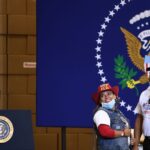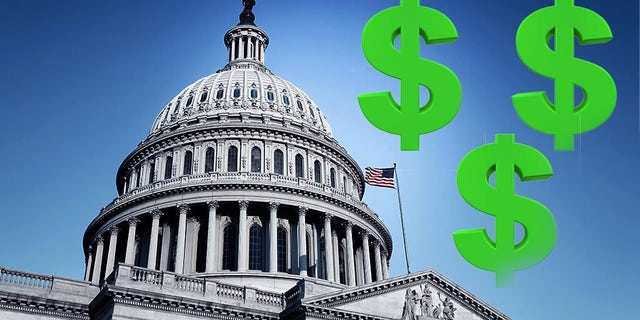
What is the STOCK Act?
Senators selling stocks before the coronavirus pandemic rocked the markets and have renewed attention on something called the STOCK Act. Here’s what you need to know.
Several vulnerable members of Congress facing tough re-elections in the November midterm elections have come under greater scrutiny for possibly violating congressional stock trading transparency rules.
Dozens of politicians of both parties who are serving in the House of Representatives or the Senate have been caught up in allegations of violating insider trading or disclosure rules, and Congress declined to work toward tougher restrictions before the midterm elections.
But several of the most vulnerable Democrats and Republicans in Congress have been accused of potentially violating the rules. Whether potential violations of the 2012 Stop Trading On Congressional Knowledge (STOCK) Act will have any effect on the midterm elections is unclear, but the violations give fuel to claims that politicians are corrupt.
One candidate accused of violating the STOCK Act is Sen. Mark Kelly, D-Ariz. — who’s running in a closely watched race against GOP candidate Blake Masters that could determine which party controls the Senate — allegedly failed to disclose his exercising of stock options for a technology firm with ties to China within the time required in the STOCK Act.
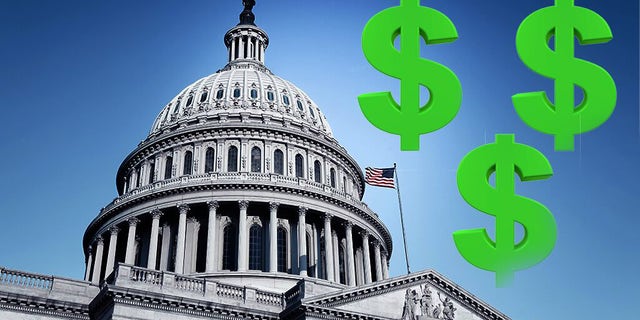
(Fox News)
Kelly’s campaign told Fox News that the stock option was later disclosed on the advice of Senate Ethics Committee, though it wasn’t a stock sale or purchase. And his campaign said that Kelly has pushed for greater transparency in Congress.
“Senator Kelly is proud to be the only member of Congress to put his assets into Blind Trusts, reject Corporate PAC money, post his Senate schedule online, and introduce legislation to make this the new standard in the Senate,” said Kelly campaign spokesperson Sarah Guggenheimer in a statement. “His commitment to transparency stands in stark contrast to Blake Masters who accepts corporate PAC money and has no plans to eliminate conflicts of interest from the many Big Tech investments he still holds with his former boss Peter Thiel.”
The STOCK Act did two things, according to Delaney Marsco, senior counsel at the Campaign Legal Center, an ethics watchdog organization. First, the act further prohibited members of Congress from inside trading — which involves using non-public information to make trades on the stock market and which is already illegal. Second, the act required members of Congress to report trades in a timely manner for transparency. Like Kelly, most alleged STOCK Act violations involve failure to disclose the trades in their name or their spouse’s within the required 45-day timeline.
“We’ve seen over the past two years especially that members of Congress are not great at filing these reports accurately or on time,” Marsco told Fox News Digital. The frequently late filings are not a problem of one party over the other, but “everyone’s doing it badly,” Marsco said.
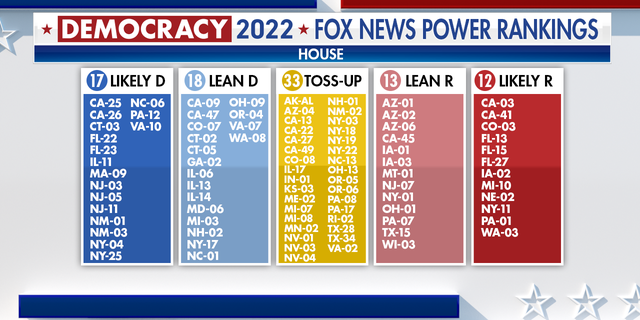
Fox News Power Rankings for crucial House races in 2022. (Fox News)
Allegations of STOCK Act violations have made it into political ad wars, with outside groups seeking to paint political opponents as part of Washington corruption.
The Congressional Leadership Fund, a Republican super PAC, came out with an ad attacking Rep. Susie Lee, D-Nev., for up to $3 million worth of stock trades amid the COVID-19 pandemic.
And it’s not just Democrats being accused of corruption for violating the STOCK Act. The Democratic Congressional Campaign Committee (DCCC), the Democrats’ House election arm, went after Rep. Steve Chabot, R-Ohio, for “[hiding] his big pharma stock trades from the public” because he failed to disclose up to $30,000 worth of stock trades.
Fox News’ Power Rankings rates Chabot’s race against Democratic nominee Greg Landsman as “Lean R.”
The allegation that Rep. Tom Malinowski, D-N.J., allegedly failed to disclose dozens of personal stock trades in the medical industry, totaling as much as $3.2 million, also became subject of an attack ad from the Congressional Leadership Fund.
The ad claimed Malinowski was “just another insider politician trying to get rich in office” for trading medical stocks amid the COVID-19 pandemic. The Office of Congressional Ethics determined that Malinowski did not direct the stock trades and had no knowledge of the trades.
According to Malinowski’s campaign spokesperson, Naree Ketudat, the second-term congressman supports the STOCK Act and “has already gone above and beyond the requirements of the law by placing his life’s savings into a qualified blind trust — that is why he also supports and is sponsoring the ban on member stock trading.”
“The public needs to have trust in their representatives, and our current financial disclosure system is primed for partisan exploitation. Instead of attempting to work within a system we know is broken, let’s put in place simpler requirements that eliminate even the suggestion of impropriety,” Ketudat told Fox News.
But defenses that a member of Congress does not have direct knowledge of trades does little to tamp down the appearance of corruption. Marsco says voters are overwhelmingly skeptical that the access to information that members of Congress have doesn’t somehow influence financial decisions.
“Should members of Congress be restricted from trading individual stocks? By and large, people say yes,” Marsco said.
Not all violations of the STOCK Act carry the same appearance of conflict of interest. Rep. Sean Patrick Maloney, D-N.Y., whose race this November is considered a toss-up, for months failed to disclose stocks he inherited from his late mother.
Rep. Vicente González, D-Texas, running in a “Lean R” race, failed to disclose a stock trade with up to $15,000 of a mining company. But González’s campaign said he supports the STOCK Act and that he paid the necessary fine.
“Congressman González followed all financial disclosure protocols, including paying the fee for the late filing. He supports common-sense measures that ensure transparency for lawmakers on both sides of the aisle, like the STOCK Act,” González’s campaign spokesman, James Rivera, told Fox News Digital.
The fee associated with failing to disclose a trade is $200, a figure that for many Americans would cause economic pain is barely noticeable for the richer members of Congress, Marsco says.
Among the dozens of members of Congress accused of violating the STOCK Act’s reporting requirements, many characterize the failure as a mistake.
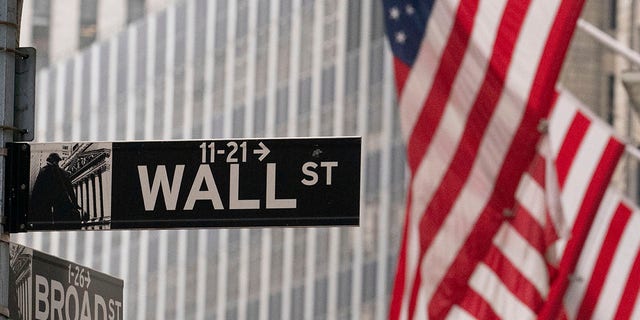
A street sign for Wall Street is seen outside the New York Stock Exchange. (AP Photo/Mark Lennihan)
Rep. Kim Schrier, D-Wash., who’s running in a tight “Lean D” race, failed to disclose up to $1 million in Apple stock that her husband purchased. Her office said she was unaware of the trade. Rep. Cindy Axne, D-Iowa, who’s running in a “Lean R” race, allegedly failed to file transaction reports in 2019 and 2020.
Rep. Mike Garcia, R-Calif., reportedly waited until after his 2020 election to report stock trades he made after his May 2019 special election. The campaigns of Schrier, Axne and Garcia did not respond to Fox News Digital’s request for comment.
To Marsco, the excuse that a congressional leader was unaware of the requirements to report a decade after the STOCK Act became law is insufficient defense. But it indicates that the safeguards of the 2012 STOCK Act are clearly failing, according to Marsco, making the reform a bipartisan push.
“The public isn’t stupid. They’re not going to have the wool pulled over their eyes — they want to see this reform because it’s a no-brainer. Members of Congress have all this power, all this information, why do they get, essentially, to buy and sell stocks while they’re picking winners and losers with the legislation and the committee hearings that they participate in every day as part of their job? It makes no sense and the public agrees.”
CLICK HERE TO GET THE FOX NEWS APP
Several proposed bills would ban members of Congress from making any stock trades. But those legislative proposals were tabled until at least after the Nov. 8 elections.
“It’s a widespread, bipartisan feeling that there needs to be more restriction on individual stock trades,” Marsco said.






